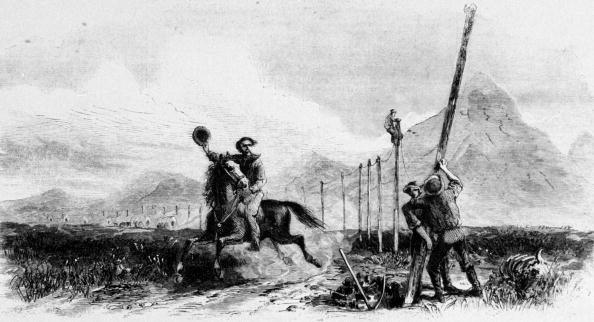
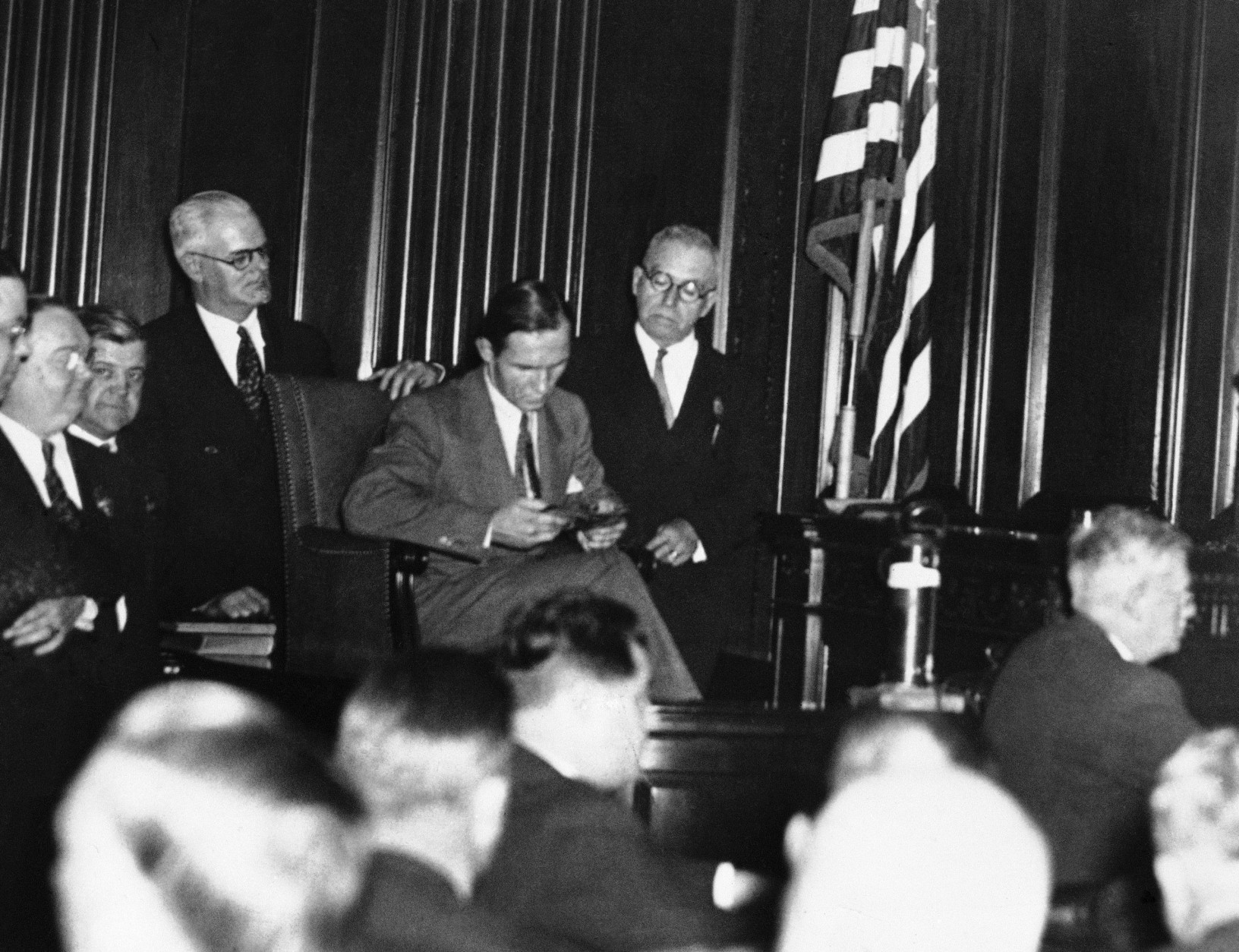
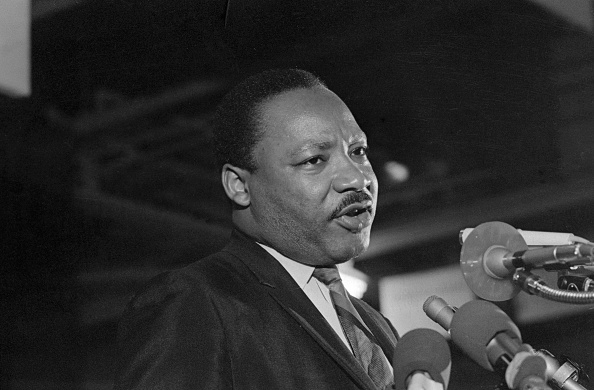
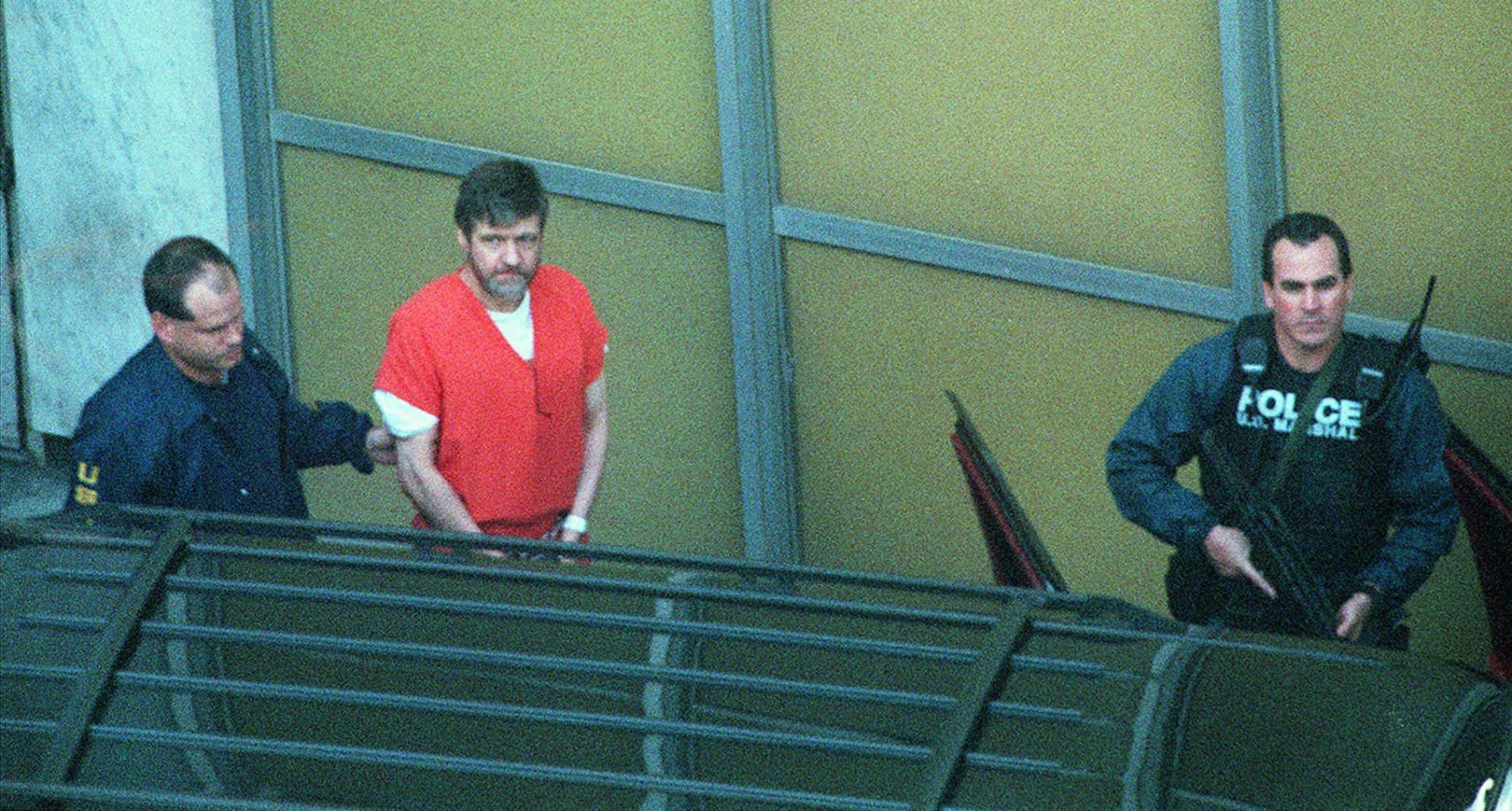
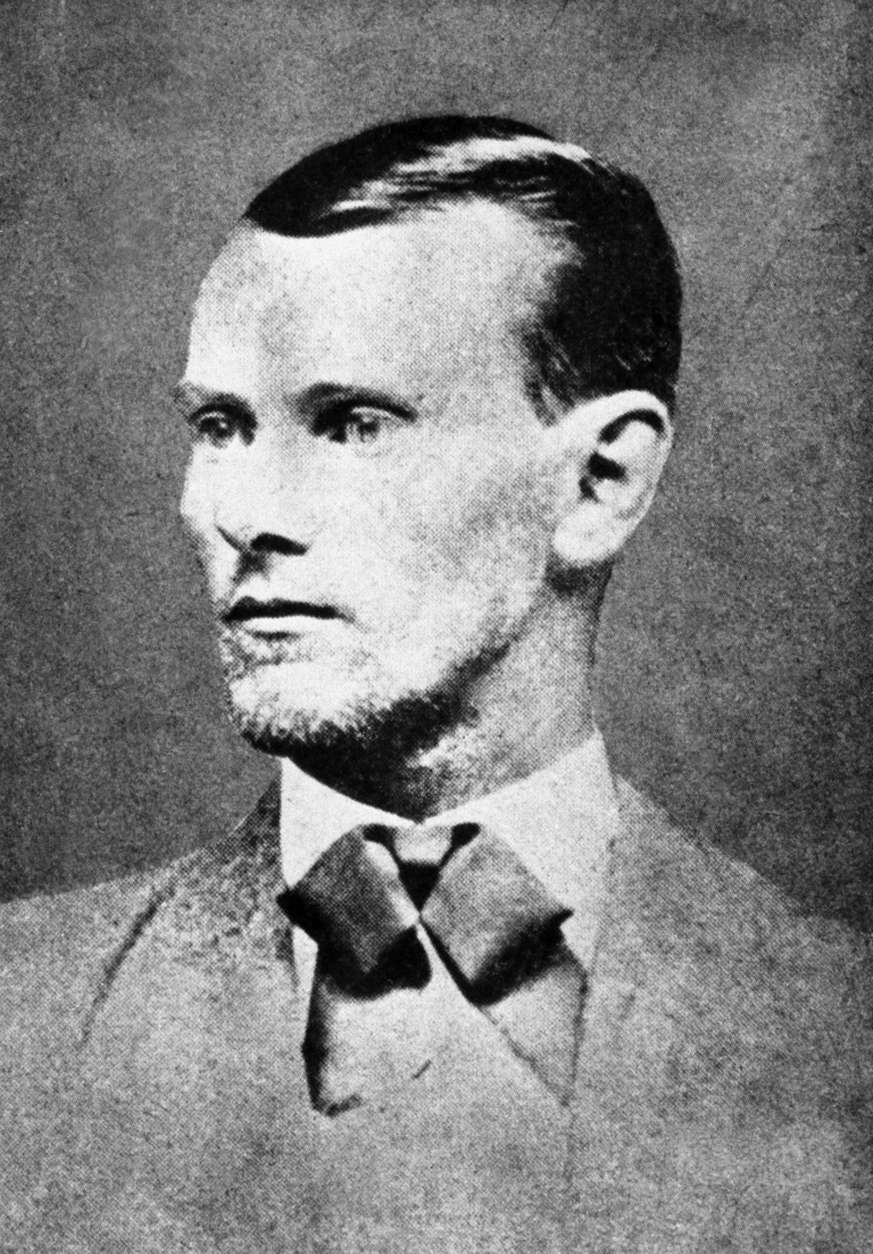
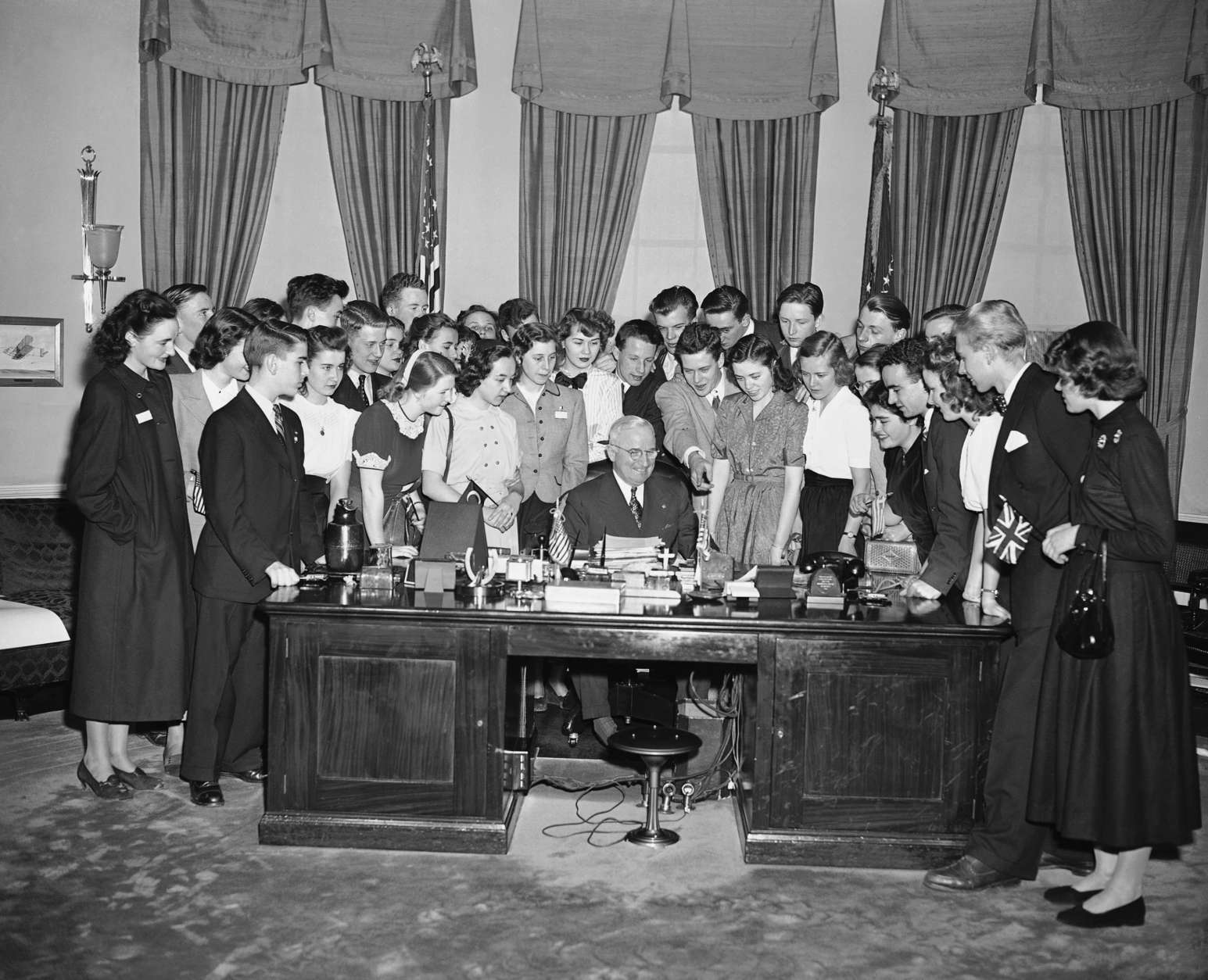
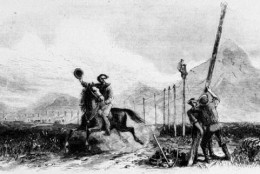
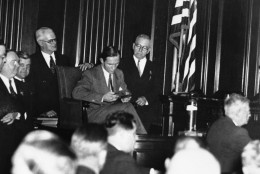
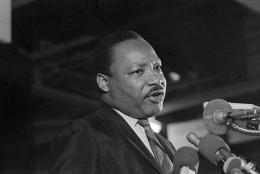
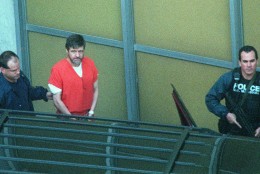
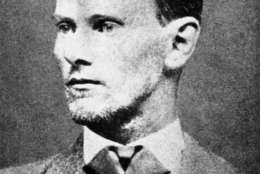
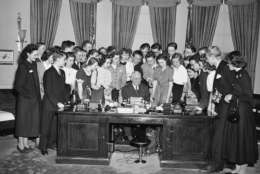
Today is Wednesday, April 3, the 93rd day of 2019.
Today’s Highlight in History:
On April 3, 1968, civil rights leader Martin Luther King Jr. delivered what turned out to be his final speech, telling a rally of striking sanitation workers in Memphis, Tennessee, that “I’ve been to the mountaintop” and “seen the Promised Land. I may not get there with you. But I want you to know tonight that we, as a people, will get to the Promised Land!” (About 20 hours later, King was felled by an assassin’s bullet at the Lorraine Motel.)
On this date:
In 1860, the legendary Pony Express began carrying mail between St. Joseph, Missouri, and Sacramento, California. (The delivery system lasted only 18 months before giving way to the transcontinental telegraph.)
In 1882, outlaw Jesse James was shot to death in St. Joseph, Missouri, by Robert Ford, a member of James’ gang.
In 1936, Bruno Hauptmann was electrocuted in Trenton, New Jersey, for the kidnap-murder of Charles Lindbergh Jr.
In 1942, during World War II, Japanese forces began their final assault on Bataan against American and Filipino troops who surrendered six days later; the capitulation was followed by the notorious Bataan Death March.
In 1944, the U.S. Supreme Court, in Smith v. Allwright, struck down a Democratic Party of Texas rule that allowed only white voters to participate in Democratic primaries.
In 1948, President Harry S. Truman signed the Marshall Plan, designed to help European allies rebuild after World War II and resist communism.
In 1965, the United States launched the SNAP-10A nuclear power system into Earth orbit; it was the first nuclear reactor sent into space.
In 1968, North Vietnam agreed to meet with U.S. representatives to set up preliminary peace talks.
In 1974, deadly tornadoes began hitting wide parts of the South and Midwest before jumping across the border into Canada; more than 300 fatalities resulted from what became known as the Super Outbreak.
In 1996, Unabomber Theodore Kaczynski (kah-ZIHN’-skee) was arrested at his remote Montana cabin. An Air Force jetliner carrying Commerce Secretary Ron Brown and American business executives crashed in Croatia, killing all 35 people aboard.
In 2003, Atlantic magazine editor Michael Kelly, 46, became the first American journalist to be killed while covering the Iraq war.
In 2017, a divided Senate Judiciary Committee panel voted 11-9 along party lines to favorably recommend Supreme Court nominee Neil Gorsuch to the full Senate. North Carolina scored the last eight points for a 71-65 win over Gonzaga and an NCAA title.
Ten years ago: An ethnic Chinese from Vietnam, Jiverly Wong, opened fire inside an immigrant community center in Binghamton, N.Y., killing 13 people, most of them immigrants, before taking his own life. The Iowa Supreme Court unanimously legalized gay marriage. The Labor Department reported unemployment reached 8.5 percent in March 2009, the highest in a quarter-century. Tom Braden, who helped launch CNN’s “Crossfire” and whose memoir “Eight is Enough” inspired a TV show, died in Denver at age 92.
Five years ago: The Associated Press reported that the U.S. government had masterminded the creation of a “Cuban Twitter” designed to undermine the communist government in Havana. Serial killer Tommy Lynn Sells was put to death in Texas after the U.S. Supreme Court rejected his lawyers’ demand that the state release information about where it had gotten its lethal injection drug. David Letterman announced during a taping of the “Late Show” on CBS that he was retiring as host in 2015 (Stephen Colbert was named as his replacement a week later).
One year ago: A woman opened fire with a handgun in a courtyard at YouTube headquarters in San Bruno, California, wounding three people before fatally shooting herself; family members said she was upset with the company’s handling of her videos and believed she was being deprived of income and views. President Donald Trump said he wanted to use the military to secure the U.S.-Mexico border until his promised border wall was built.
Copyright © 2026 The Associated Press. All rights reserved. This material may not be published, broadcast, written or redistributed.







